 W
WA meeting is when two or more people come together to discuss one or more topics, often in a formal or business setting, but meetings also occur in a variety of other environments. Many various types of meetings exist.
 W
WAn annual general meeting is a meeting of the general membership of an organization.
 W
WAn assembly hall is a kind of function hall, a large room used to hold public meetings or meetings of the members of an organization such as a school, church, or deliberative assembly. An example of the last case is the Assembly Hall where the general assembly of the state of Mississippi was held. Some Christian denominations call their meeting places or places of worship assembly halls. Elders and ministers of Presbyterian churches gather in assembly halls for their general assembly, such as in the General Assembly Hall of the Church of Scotland.
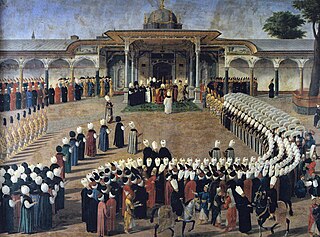 W
WAn audience is a formal meeting that takes place between a head of state and another person at the invitation of the head of state. Often, the invitation follows a request for a meeting from the other person. Though sometimes used in republics to describe meetings with presidents, the term is more usually associated with monarchs and popes.
 W
WA candlelight vigil or candlelit vigil is an outdoor assembly of people carrying candles, held after sunset in order to show support for a specific cause. Such events are typically held either to protest the suffering of some marginalized group of people, or in memory of the dead. In the latter case, the event is often called a candlelight memorial. A large candlelight vigil will usually have invited speakers with a public address system and may be covered by local or national media. Speakers give their speech at the beginning of the vigil to explain why they are holding a vigil and what it represents. Vigils may also have a religious or spiritual purpose. On Christmas Eve many churches hold a candlelight vigil.
 W
WUnder the Chatham House Rule, anyone who comes to a meeting is free to use information from the discussion, but is not allowed to reveal who made any comment. It is designed to increase openness of discussion. The rule is a system for holding debates and discussion panels on controversial topics, named after the headquarters of the UK Royal Institute of International Affairs, based in Chatham House, London, where the rule originated in June 1927.
 W
WKainos CodeCamp is an initiative established by Kainos on 22 July 2013, in association with Belfast Metropolitan College, which Kainos continues to run in various locations across the UK. The aim of CodeCamp is to give young people a real-life view of software development, improve their computing skills and inspire them to pursue a career in IT. The attendees use tools such as MIT’s App Inventor to create their own mobile applications for the Android operating system and Paint.NET to produce their application graphics. Practical sessions, named "Breakouts", are run by mentors during the camp to teach attendees about different topics in computing, including Eclipse with Android SDK, iOS development, how to use Git, Mathematical logic, UX design and Web development.
 W
WA committee or commission is a body of one or more persons that is subordinate to a deliberative assembly. Usually, the assembly sends matters into a committee as a way to explore them more fully than would be possible if the assembly itself were considering them. Committees may have different functions and their types of work differ depending on the type of the organization and its needs.
A conference hall, conference room, or meeting room is a room provided for singular events such as business conferences and meetings.
 W
WA congress is a formal meeting of the representatives of different countries, constituent states, organizations, trade unions, political parties or other groups. The term originated in Late Middle English to denote an encounter during battle, from the Latin congressus.
 W
WConsensus decision-making or consensus politics is group decision-making processes in which participants develop and decide on proposals with the aim, or requirement, of acceptance by all. The focus on avoiding negative opinion differentiates consensus from unanimity, which requires all participants to positively support a decision.
 W
WA convention, in the sense of a meeting, is a gathering of individuals who meet at an arranged place and time in order to discuss or engage in some common interest. The most common conventions are based upon industry, profession, and fandom. Trade conventions typically focus on a particular industry or industry segment, and feature keynote speakers, vendor displays, and other information and activities of interest to the event organizers and attendees. Professional conventions focus on issues of concern along with advancements related to the profession. Such conventions are generally organized by societies or communities dedicated to promotion of the topic of interest. Fan conventions usually feature displays, shows, and sales based on pop culture and guest celebrities. Science fiction conventions traditionally partake of the nature of both professional conventions and fan conventions, with the balance varying from one to another. Conventions also exist for various hobbies, such as gaming or model railroads.
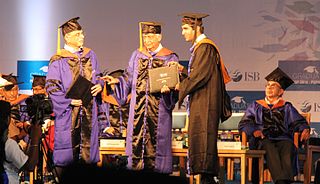 W
WA convocation is a group of people formally assembled for a special purpose, mostly ecclesiastical or academic.
 W
WA council of war is a term in military science that describes a meeting held to decide on a course of action, usually in the midst of a battle. Under normal circumstances, decisions are made by a commanding officer, optionally communicated and coordinated by staff officers, and then implemented by subordinate officers. Councils of war are typically held when matters of great importance must be decided, consensus must be reached with subordinates, or when the commanding officer is unsure of his position. The classic council of war includes a discussion and then a vote, often taken without the senior commander present to influence or intimidate the subordinates. The tradition in such meetings is that the officers vote in reverse sequence of their seniority, with the junior officers voting first.
 W
WDoodle is a Swiss online calendar tool for time management, and coordinating meetings. It is based in Zurich, Switzerland and has been operational since 2007. It has offices in Berlin, Tel Aviv, and Belgrade.
 W
WEuropean Architecture Student Assembly (EASA) was founded in 1981 by architect students like Geoff Haslam and Richard Murphy and is closely related to the Winterschool concept, which organises similar events for UK students of architecture. EASA takes place each summer in a different country, with the event usually lasting two weeks. It is organised by students of architecture for students of architecture and the concept is operated on a cooperative basis. In fall at INCM, Intermediate National Contact Meeting, the location for EASA is decided one and a half years in advance. Typically 400 students take part in the event and engage in workshops, exhibitions, lectures and social events loosely based around a specific theme. These events are run by a combination of academics and students and encompass a wide variety of activities with a greater or lesser relationship to architecture. The event is funded through a combination of attendance fees, grants and sponsorship, all arranged by the organising committee for each event.
 W
WA facilitator is a person who helps a group of people to work together better, understand their common objectives, and plan how to achieve these objectives, during meetings or discussions. In doing so, the facilitator remains "neutral", meaning they do not take a particular position in the discussion. Some facilitator tools will try to assist the group in achieving a consensus on any disagreements that preexist or emerge in the meeting so that it has a solid basis for future action.
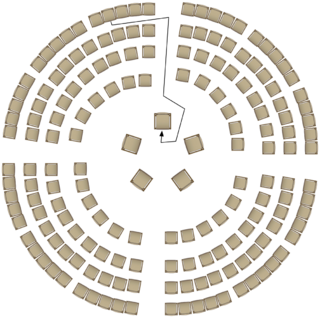 W
WA fishbowl conversation is a form of dialog that can be used when discussing topics within large groups. Fishbowl conversations are sometimes also used in participatory events such as unconferences. The advantage of fishbowl is that it allows the entire group to participate in a conversation. Several people can join the discussion.
 W
WAn assembly hall is a kind of function hall, a large room used to hold public meetings or meetings of the members of an organization such as a school, church, or deliberative assembly. An example of the last case is the Assembly Hall where the general assembly of the state of Mississippi was held. Some Christian denominations call their meeting places or places of worship assembly halls. Elders and ministers of Presbyterian churches gather in assembly halls for their general assembly, such as in the General Assembly Hall of the Church of Scotland.
 W
WA meeting point, meeting place, or assembly point is a geographically defined place where people meet. Such a meeting point is often a landmark that has become popular and is a convenient place for both tourists and citizens to meet. Examples of meeting points include public areas and facilities such as squares, statues, parks, amusement parks, railway stations, airports, etc. or officially designated and signed points in such public facilities. There is often a public sign designating an official meeting point in public facilities.
 W
WMinutes, also known as minutes of meeting, protocols or, informally, notes, are the instant written record of a meeting or hearing. They typically describe the events of the meeting and may include a list of attendees, a statement of the issues considered by the participants, and related responses or decisions for the issues.
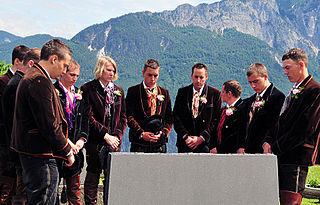 W
WA moment of silence is a period of silent contemplation, prayer, reflection, or meditation. Similar to flying a flag at half-mast, a moment of silence is often a gesture of respect, particularly in mourning for those who have died recently, or as part of a tragic historical event, such as the September 11 attacks of 2001.
 W
WOver the Air was an annual mobile technology-focused overnight hack day event held in London from 2008 to 2016. The two-day event would include practical and educational talks and a hacking competition. Sponsors of the event have included the BBC, Bluevia, Nokia, PayPal, and Vodafone. Some of the ideas developed at Over the Air have been turned into commercial services.
 W
WA parley refers to a discussion or conference, especially one designed to end an argument or hostilities between two groups of people. The term can be used in both past and present tense; in present tense the term is referred to as parleying. The term "parley" has been used to refer to numerous high-profile meetings of the 20th century, including the London and Paris Conferences held in 1954 to determine the status of West Germany.
 W
WA plenary session or plenum is a session of a conference which all members of all parties are to attend. Such a session may include a broad range of content, from keynotes to panel discussions, and is not necessarily related to a specific style of presentation or deliberative process.
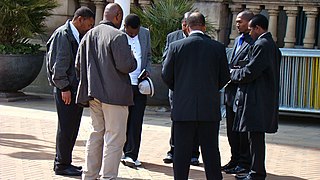 W
WA prayer meeting is a group of lay people getting together for the purpose of prayer as a group. Prayer meetings are typically conducted outside regular services by one or more members of the clergy or other forms of religious leadership, but they may also be initiated by decision of non-leadership members as well.
 W
WA program book is a printed schedule of meeting events, locations of function rooms, location of exhibitors, and other pertinent information pertaining to a convention or conference. It is customary in many cases to sell advertising in program books to cover part of the costs of operation.
 W
WRobert's Rules of Order Newly Revised, commonly referred to as Robert's Rules of Order, RONR, or simply Robert's Rules, is a political book written by Henry Martyn Robert. It is the most widely used manual of parliamentary procedure in the United States. It governs the meetings of a diverse range of organizations—including church groups, county commissions, homeowners associations, nonprofit associations, professional societies, school boards, and trade unions—that have adopted it as their parliamentary authority.
 W
WA salon is a gathering of people held by an inspiring host. During the gathering they amuse one another and increase their knowledge through conversation. These gatherings often consciously followed Horace's definition of the aims of poetry, "either to please or to educate". Salons in the tradition of the French literary and philosophical movements of the 17th and 18th centuries were carried on until as recently as the 1920s in urban settings.
 W
WSkeptics in the Pub is an informal social event designed to promote fellowship and social networking among skeptics, critical thinkers, freethinkers, rationalists and other like-minded individuals. It provides an opportunity for skeptics to talk, share ideas and have fun in a casual atmosphere, and discuss whatever topical issues come to mind, while promoting skepticism, science, and rationality.
 W
WSpeed geeking is a participation process used to quickly view a number of presentations within a fixed period of time. Speed geeking gets its name from speed dating, since they both employ similar techniques.
 W
WA Stammtisch is an informal group meeting held on a regular basis, and also the usually large, often round table around which the group meets. A Stammtisch is not a structured meeting, but rather a friendly get-together.
 W
WStruggle sessions were a form of public humiliation and torture used by the Chinese Communist Party (CCP) at various times in the Mao era, particularly during the years immediately before and after the establishment of the People's Republic of China (PRC) and during the Cultural Revolution. The aim of struggle sessions was to shape public opinion, as well as to humiliate, persecute, or execute political rivals and those deemed class enemies.
 W
WTown hall meetings, also referred to as town halls or town hall forums, an expression that originates mainly from North America, are a way for local and national politicians to meet with their constituents either to hear from them on topics of interest or to discuss specific upcoming legislation or regulation. During periods of active political debate, town halls can be a locus for protest and more active debate. The term is unfamiliar in British English where the equivalent is a (political) surgery.
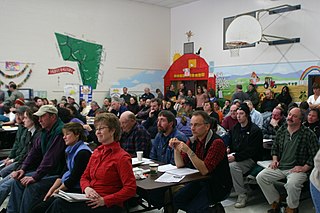 W
WA town meeting is a form of direct democracy in which most or all of the members of a community come together to legislate policy and budgets for local government. It is a town- or city-level meeting in which decisions are made, in contrast with town hall meetings held by state and national politicians to answer questions from their constituents, which have no decision-making power.
 W
WA meeting took place at Trump Tower in New York City on June 9, 2016, between three senior members of the 2016 Trump campaign – Donald Trump Jr., Jared Kushner, and Paul Manafort – and at least five other people, including Russian lawyer Natalia Veselnitskaya. The meeting was arranged by publicist and long-time Trump acquaintance Rob Goldstone on behalf of his client, singer-songwriter Emin Agalarov. The meeting was first disclosed to U.S. government officials in April 2017, when Kushner filed a revised version of his security clearance form.
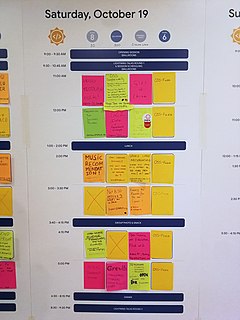 W
WAn unconference is a participant-driven meeting. The term "unconference" has been applied, or self-applied, to a wide range of gatherings that try to avoid hierarchical aspects of a conventional conference, such as sponsored presentations and top-down organization.